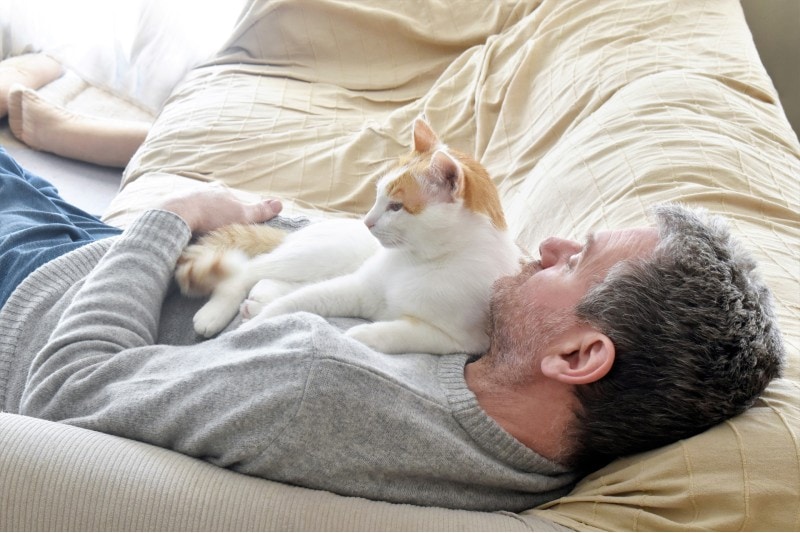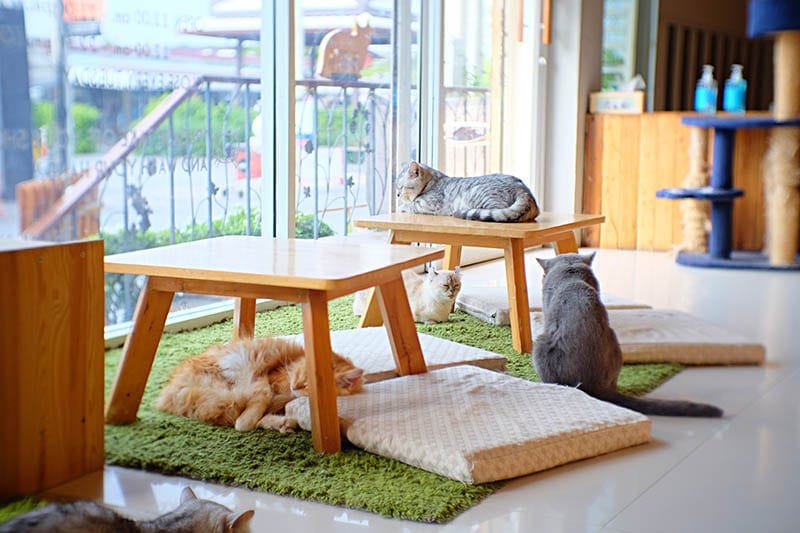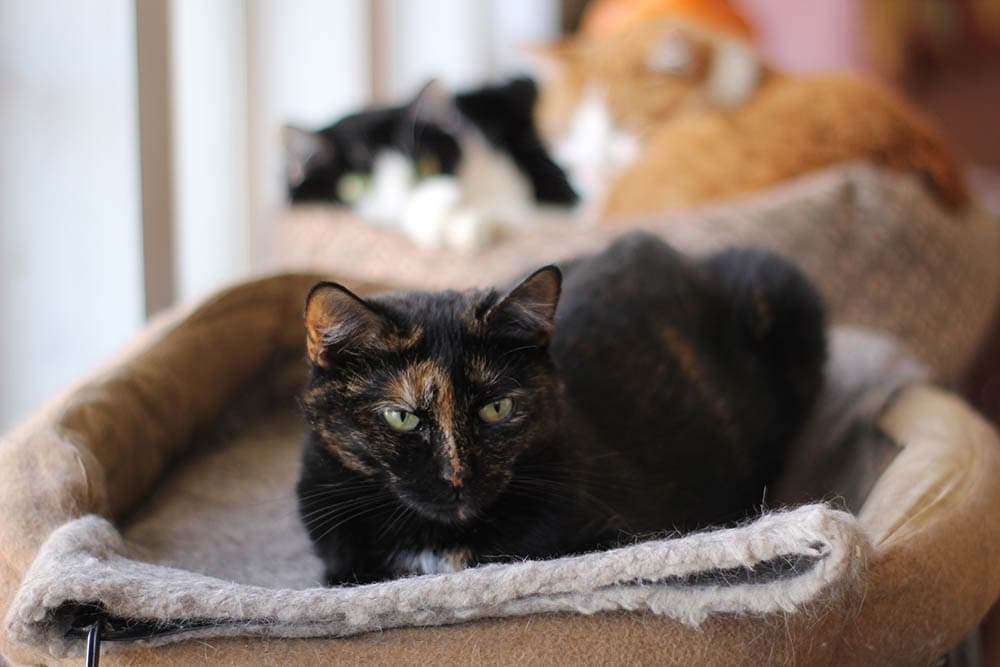Can Cats Eat Potatoes? Vet-Reviewed Health & Safety Guide

Updated on
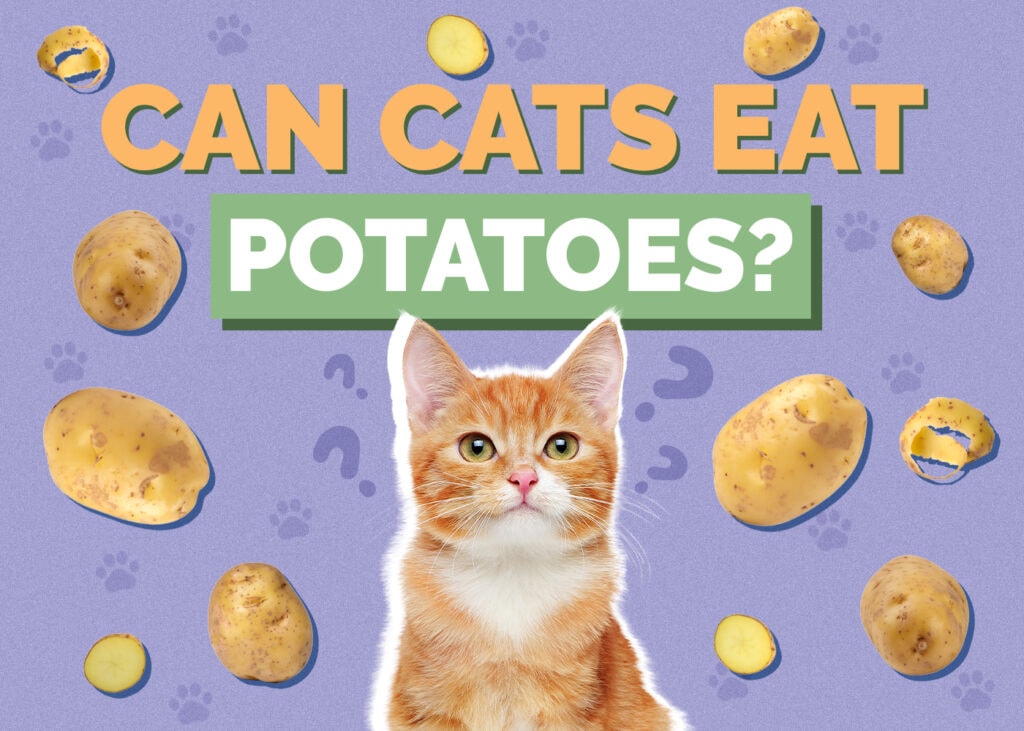
Cats are obligate carnivores, which means that most of their diet should be made up of animal proteins. However, an occasional cat-safe fruit or vegetable treat is fine for your cats, provided they are prepared properly.
If your pet shows an interest in them, cats can safely eat potatoes, provided they have no condiments or seasonings and are cooked thoroughly. We’ll get into more of the details below.
Cats and Potatoes
Some cats will turn up their noses at anything that isn’t kibble, while others will only eat canned or wet food. Then there are the cats who are curious about everything you eat and want to share your dinner with you. The good news is that there are many fruits and vegetables that your cat can enjoy with you, including potatoes. So, if your feline friend wants a nibble of your potato, it is fine to share with them as long as you moderate their consumption. The healthiest preparation methods of potatoes for your kitty are boiled or steamed.
Benefits of Potatoes in a Cat’s Diet
Cats do not need many carbohydrates in their diet, and no more than 10%1 of their total caloric intake should come from high-quality carbohydrate sources. Potatoes are high in starch and are a very popular choice for a carbohydrate in commercial cat food, especially dry kibble. Kibbles need some source of carbohydrate to hold the form and be processed properly.
Most of the composition of a potato is water. Additionally, potatoes are primarily composed of carbohydrates (in the form of starch) and contain some protein, fat, and various other vitamins and minerals. However, many of the nutrients in a potatoe are found in its skin. Peeling the skin off will therefore lower their nutritional yield.
Rest assured that it’s very easy for your cat to derive the nutrients offered by potatoes from other sources. Therefore, you shouldn’t obsess with trying get your cat to consume potatoes if they don’t seem to enjoy them.
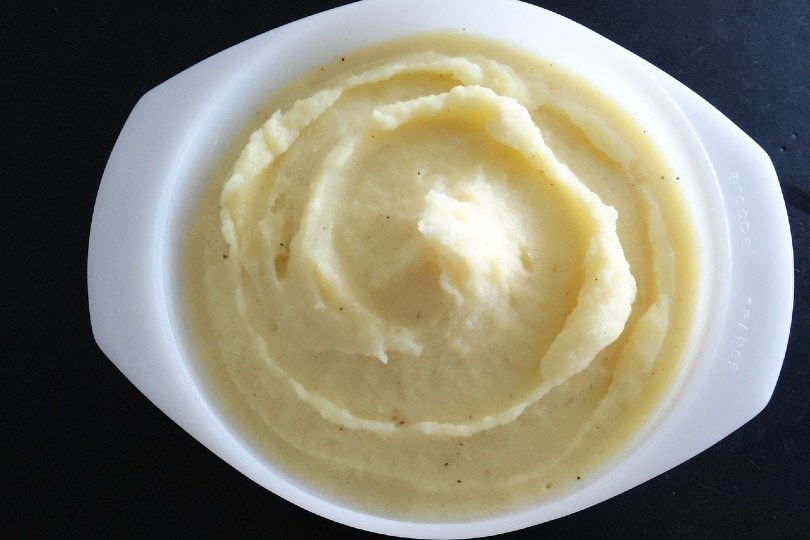
Important Tips for Preparing Potatoes for Your Cat
If you want to share your potatoes with your cat, there are some important things you need to know to ensure that you are keeping your cat safe.
- Cook Them: Potatoes must be fully cooked. Uncooked/undercooked potatoes contain phytonutrients known as glycoalkaloids. Two of these, solanine and chaconine, are toxic to both cats and humans. In addition, cats lack the ability to properly digest uncooked potatoes.
- Plain Potatoes Only: We like a little salt, butter, and chives on our potatoes. However, your cat should only be given plain, unseasoned potatoes that are either boiled or steamed.
- No Frying, Roasting, or Baking: When potatoes are cooked at very high temperatures, such as when they are fried, roasted, or baked, they produce high amounts of compounds called acrylamides. These are contaminants that have adverse health effects when consumed for long periods of time. Additionally, french fries also often contain high amounts of oil and salt, which are not good for your cat and can cause an upset stomach.
- Don’t Overdo It: Like any other treat you like to give your cat, potatoes are fine in moderation. Too much of any treat will lead to weight gain in your cat. Overweight cats are susceptible to many health problems.
Different Types of Potatoes
Your cat might show an interest in both white and sweet potatoes. Both are fine as occasional treats, but there are some differences you should be aware of.
White Potatoes
Plain steamed, boiled, or mashed potatoes can be given to your cat on occasion without any problems. They provide beneficial vitamins and minerals and can be a tasty treat. Some cats may not have any interest in them, and that is just fine! Your kitty can get the nutrition they need from other sources.
Sweet Potatoes
Small amounts of sweet potatoes are fine on occasion. However, they have a higher sugar content than white potatoes. It is important to note that cats have sweet blindness, which means they do not taste sweetness. Sweet potatoes are also more calorie-dense than regular potatoes; they have more carbohydrates and fat (but lower protein). Excessive intake of sweet potatoes may lead to an obese cat, which you always want to avoid.

Other Vegetable Treats for Cats
If your cat enjoys potatoes, they may also like to try other vegetables. Keep in mind that they do not actually need vegetables in their diet to be healthy. Most high-quality cat foods will give them the nutrition they need. However, if your feline is an adventurous eater, it’s okay to occasionally give them a vegetable treat.
It is VERY important to note that if your cat has any underlying health issues, medical diagnosis, or is on medication, then you should ALWAYS consult with your veterinarian before offering any of these ingredients to them.
- Peas
- Pumpkin (pureed, steamed, unseasoned)
- Green beans (cooked)
- Carrots (steamed only)
- Spinach
- Winter squash (cooked, steamed)
- Asparagus (steamed)
- Cucumbers
Vegetables You Should Never Feed Your Cat
You should never feed your cats any vegetables from the Allium family, including onions, garlic, shallots, and chives. Even a tiny amount of any of these vegetables can damage your cat’s red blood cells, causing anemia and other health issues. They should also never be fed unripe tomatoes. With regards to fruits, avocadoes, and all citrus fruits are toxic for cats.
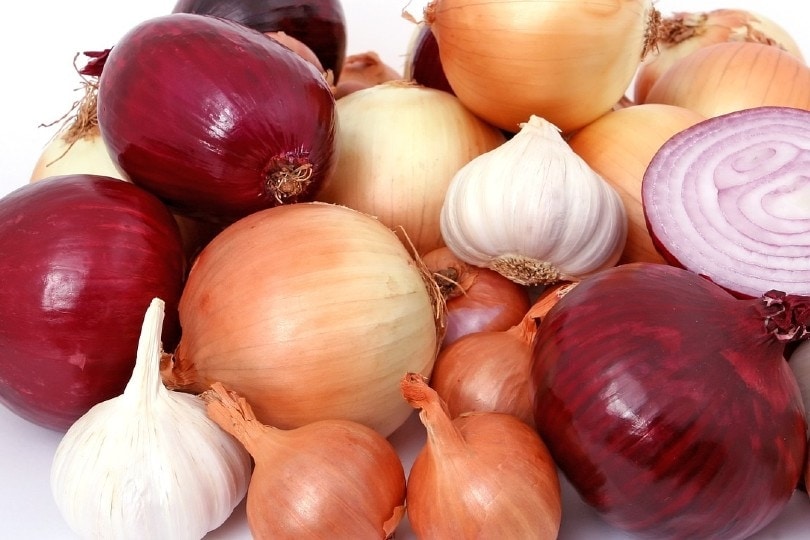
Final Thoughts
If you have an adventurous eater on your hands, it is fine to occasionally give them properly prepared vegetable treats. Your cat can safely consume fully cooked, unseasoned potatoes from time to time. You should be careful not to overdo it. Unnecessary calories will lead to weight gain and an unhealthy cat. Just as is the case for humans, moderation is the key!
Related Read:
- Can Cats Drink Cranberry Juice? Everything You Need to Know
- Can Cats Eat Broccoli? What You Need to Know
Featured Image Credit: Christos Giakkas, Pixabay




